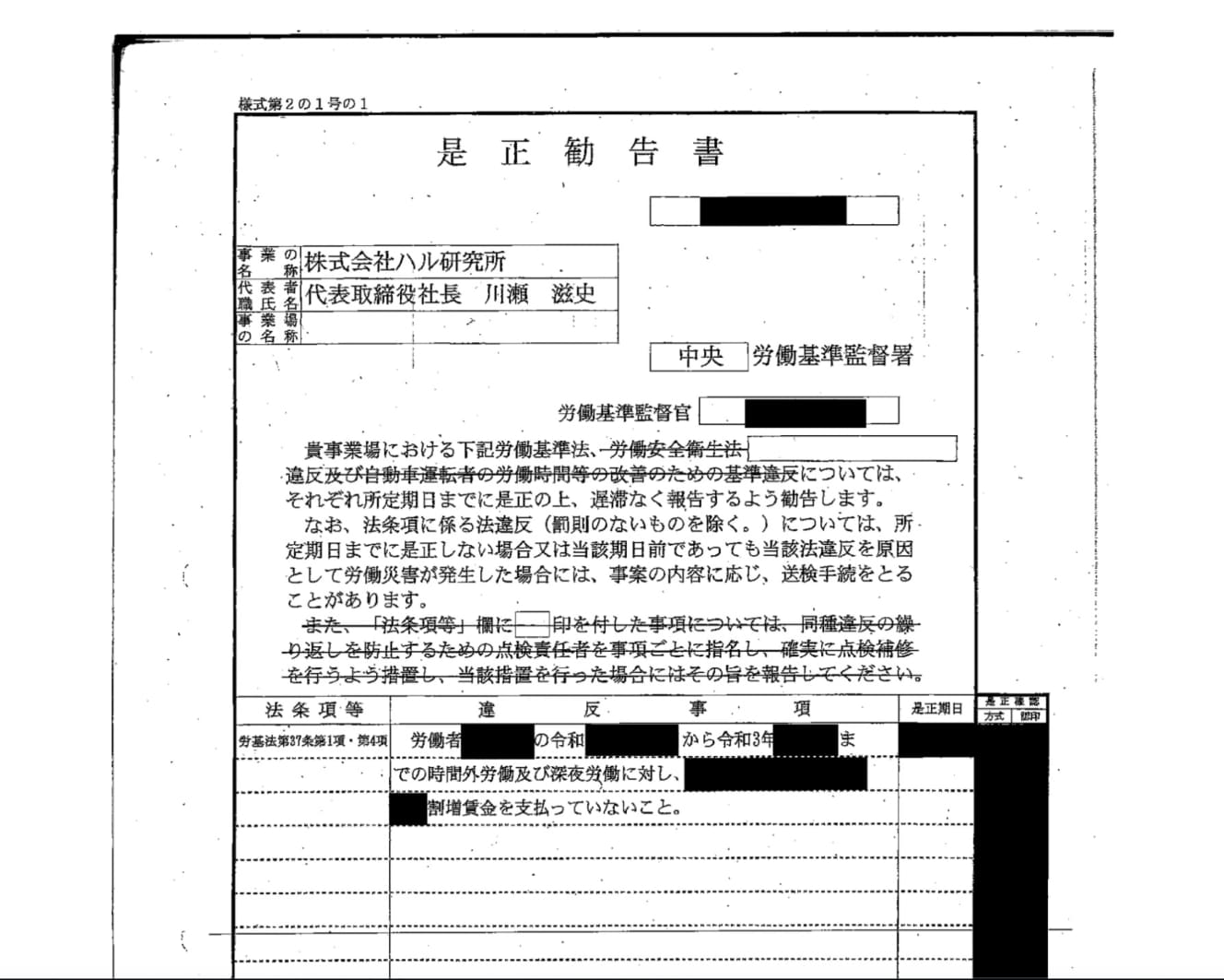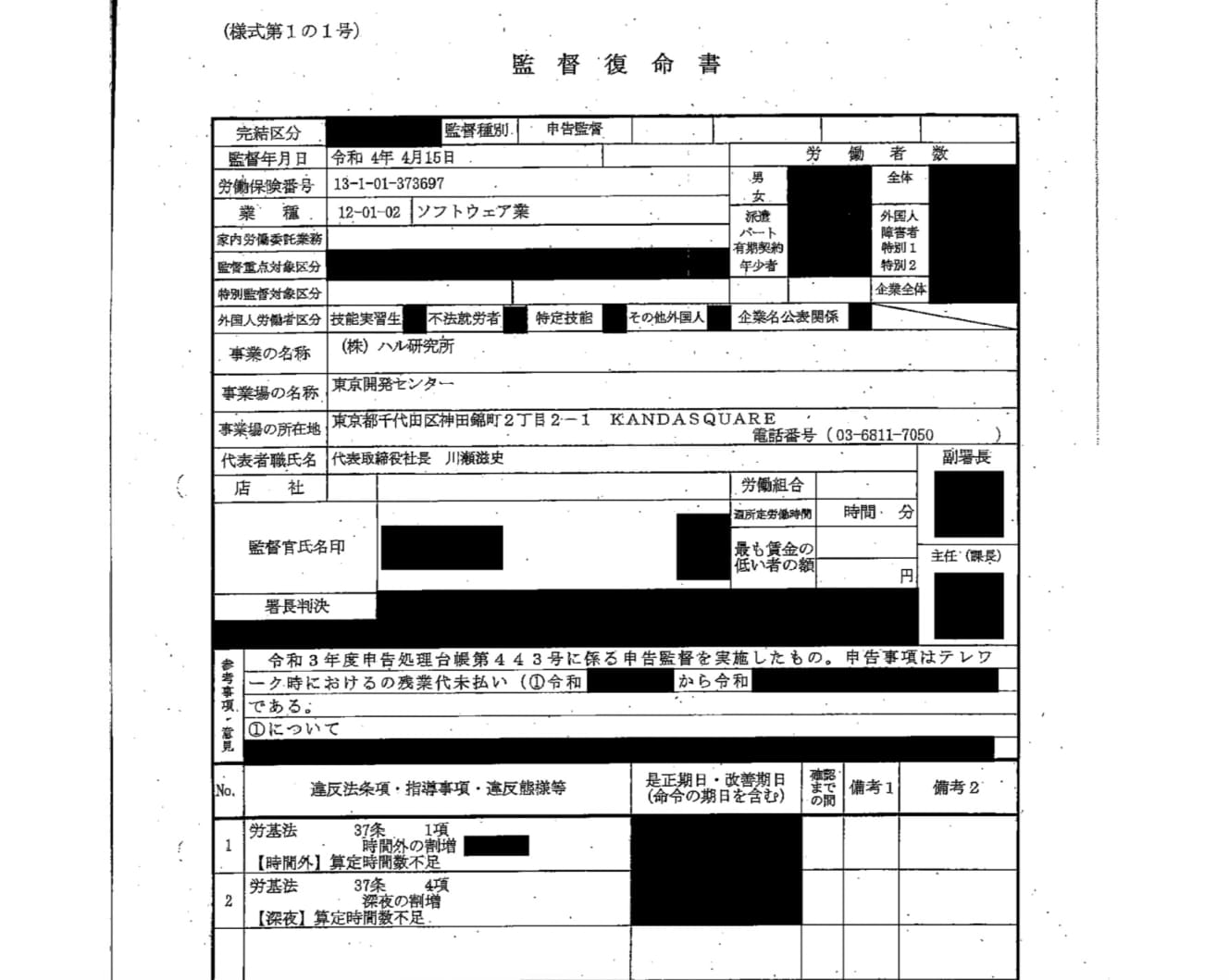The “Labor Standards Bureau’s Corrective Action Recommendations” Issued to “Kirby” and “Smash Bros.
The “Kirby of the Stars” series, “Nintendo-All-Stars! HAL Laboratory, Inc., a game manufacturer known for its production of “Super Smash Bros.” and other titles, received a corrective action recommendation from the Labor Standards Inspection Office in 2022, this publication has learned. The company was found to have failed to pay overtime and late-night wages to employees who teleworked.
The game production company “HAL Laboratory Inc.” (commonly known as “HAL Laboratory”) was founded in 1980 in Akihabara, Kanda, as a PC-related development company. Satoru Iwata, who served as Nintendo’s president and representative director, was also involved in the establishment of the company.
The turning point came with the launch of the “Family Computer” in 1983, and HALKEN also focused on software development as a third party, but the company went bankrupt in ’92 due to financial difficulties. After the restructuring of the company, “Kirby: The Fountain of Dreams” became a worldwide hit, and Kirby became one of the company’s most popular characters.
(A reporter for a national newspaper) “MOTHER 2: GIG’s Counterattack” for the Super Nintendo Entertainment System (SNES), “NINTENDO All-Star! Super Smash Bros.” and others, HALKEN has become a top manufacturer of hit titles for Nintendo’s successive hardware titles. The company has offices in Yamanashi and Kanda, Tokyo, and is currently involved in the development of non-game software, such as the browser built into “Nintendo Switch.
In 2010, the Labor Standards Bureau conducted an on-site inspection of HALKEN. A source at the company said, “In September 2008, the company was investigated by the Labor Standards Bureau.
A staff member A had joined the company in September 2008 and joined the game browser development team as a mid-career employee. The work was divided among the team, but he was forced to do more work than he could handle on his own, and he was even given work that had nothing to do with his original duties. Despite this, he still found it rewarding to be involved in the game, so he persevered and continued to work.
In 2009, when a state of emergency was declared, A was ordered to telework. Because of this working environment, not finishing work on time was an everyday occurrence. It is also commonplace that meetings and discussions are designated outside of regular hours. Therefore, I was working overtime to handle tasks at ……, but I noticed something unusual in my attendance application. During my home period, I could only apply for regular hours, and when I tried to enter regular hours, the application was dismissed in the middle of approval.”
After resigning from HAL, A asked HAL to pay the unpaid overtime and late-night wages, but the company refused, saying that it was not necessary to pay him because he had been ordered not to work overtime while working at home and the “deemed work outside the workplace” system had been applied. The company did not respond, saying, “We have never heard of such an order, and we do not need to pay you.
He said, “I never heard of any such order, and it was not written in the work rules or in my contract. Even if overtime work was prohibited, he had a very large amount of tasks that could not be completed on time. Based on the accurate working hours he had recorded himself, he reported the violation of Article 37 of the Labor Standards Law to the Labor Standards Bureau. As a result, an on-site inspection was conducted.
As a result of the on-site inspection by the Labor Standards Bureau, it was found that A had not been informed of the prohibition against staying at home because he had joined the company mid-career, and that he had not been thoroughly informed about the employment system of deemed overtime hours outside the workplace. In addition to the corrected attendance, the company also kept a work management chart with the original time stamped on it. The company was recommended to correct the situation.


The company’s response that “there was no need to pay benefits that should have been paid” reinforced the distrust of Hull Research Institute, according to the company. After the on-site inspection by the Labor Standards Bureau, the unpaid allowances were finally paid.
The entertainment industry is often accused of “rewarding exploitation” and low wages despite long working hours. If these conditions are overlooked, the number of young people who want to work in the industry will decrease, and the industry may shrink. There is also an increased risk that overwork will be overlooked.
HALKEN generally acknowledged the facts and responded as follows.
–Regarding the fact that the Labor Standards Bureau conducted an on-site inspection
In addition to disclosing data and explaining the facts to the Labor Standards Bureau, we confirmed the facts with the former employee through the Labor Standards Bureau, and as a result of reaching an agreement with the former employee and the Labor Standards Bureau, we paid the former employee benefits for overtime work that the former employee claimed. As a result, the Labor Standards Bureau has already informed us that “the case is closed, including the confirmation of the facts and the response to them.
–Regarding the prohibition of overtime work
It is true that the Labor Standards Bureau pointed out that the explanation to the former employee may have been unclear. Therefore, as a result of discussions with the Labor Standards Bureau, the former employee has been paid for the overtime work he claims to have performed.
–About the revision of attendance
The work-at-home system that was urgently implemented in response to the COVID-19 crisis was inadequately supported, and although there was a system that allowed employees to report the start of work themselves, work hours were not calculated based on this system. In addition, since it was difficult to accurately grasp working hours when the system was inadequate, a rule prohibiting overtime work was established to prevent employees from working overtime as a service.
I sincerely hope that a “second A” will not appear.
